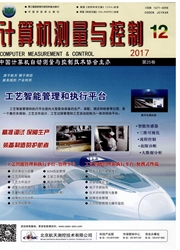

 中文摘要:
中文摘要:
Generally, the phase of the cold-atom interferometer is extracted from the atomic interference fringe, which can be obtained by scanning the chirp rate of the Raman lasers at a given interrogation time T. If mapping the phase shift for each T with a series of measurements, the extraction time is limited by the protocol of each T measurement, and therefore increases dramatically when doing fine mapping with a small step of T. Here we present a new method for rapid extraction of the phase shift via phase demodulation. By using this method, the systematic shifts can be mapped though the whole interference area. This method enables quick diagnostics of the potential cause of the phase shift in specific time. We demonstrate experimentally that this method is effective for the evaluation of the systematic errors of the cold atomic gravimeter. The systematic phase error induced by the quadratic Zeeman effect in the free-falling region is extracted by this method. The measured results correspond well with the theoretic prediction and also agree with the results obtained by the fringe fitting method for each T.更多还原
 英文摘要:
英文摘要:
Generally, the phase of the cold-atom interferometer is extracted from the atomic interference fringe, which can be obtained by scanning the chirp rate of the Raman lasers at a given interrogation time T. If mapping the phase shift for each T with a series of measurements, the extraction time is limited by the protocol of each T measurement, and therefore increases dramatically when doing fine mapping with a small step of T. Here we present a new method for rapid extraction of the phase shift via phase demodulation. By using this method, the systematic shifts can be mapped though the whole interference area. This method enables quick diagnostics of the potential cause of the phase shift in specific time. We demonstrate experimentally that this method is effective for the evaluation of the systematic errors of the cold atomic gravimeter. The systematic phase error induced by the quadratic Zeeman effect in the free-falling region is extracted by this method. The measured results correspond well with the theoretic prediction and also agree with the results obtained by the fringe fitting method for each T.
 同期刊论文项目
同期刊论文项目
 同项目期刊论文
同项目期刊论文
 期刊信息
期刊信息
